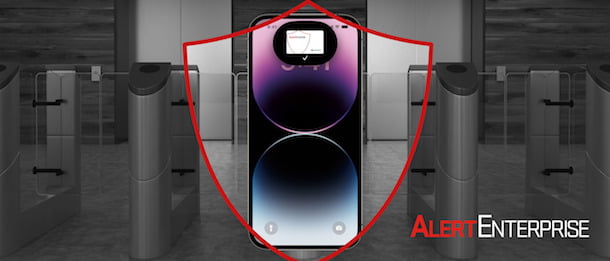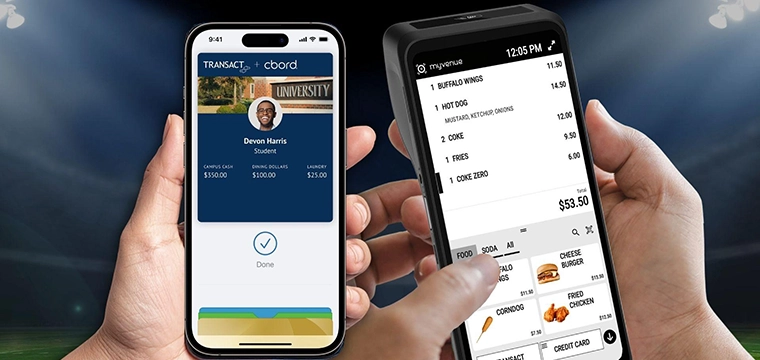
 By: Willem Ryan, Senior Vice President, Marketing and Communications, AlertEnterprise
By: Willem Ryan, Senior Vice President, Marketing and Communications, AlertEnterprise
College campuses are bustling hubs of activity, with thousands of students, faculty and staff members breezing in and out of countless doors every day. With so many people, campus buildings and an expansive network of systems, security is becoming more and more of a challenge—especially in a mobile-driven world where convenience simply can’t be compromised.
Mobile phones are ubiquitous in today's society, and most students carry them everywhere they go. The pandemic accelerated the adoption of mobile computing and the expectation of mobile convenience, and when it comes to younger generations in particular, there is virtually nothing they wouldn’t expect to be able to do on their mobile devices.
The use of smartphones is becoming increasingly integrated into daily life, and students are expecting this same level of integration in their educational lives. In fact, for many, mobile-driven experiences are becoming a deciding factor in the process of choosing which schools to attend. But how do we cater to this relentless demand for convenience as we simultaneously try to dodge ever-growing security threats?
A new technology has recently emerged that is helping make college campuses more secure with a seamless, more integrated user experience: NFC wallet mobile credentials.
NFC, or Near Field Communication, is a wireless communication technology that allows two devices to exchange information when they are close together. NFC has been around for a while, but only in recent years has it has become widely used in mobile phones. Today, many smartphones come equipped with NFC technology, which means that users can use their phones as contactless payment devices or to exchange information with other NFC-enabled devices.
NFC wallet mobile credentials take this technology a step further by allowing users to store their identification and access credentials on their mobile phones. Instead of carrying around a physical ID card or key fob, students, faculty and staff members can use their smartphones to access buildings, rooms and other restricted areas on campus. This has a number of benefits, including increased security, convenience and cost savings.
By using their iPhones or Apple Watches as access cards, students and faculty no longer have to worry about losing or forgetting their plastic cards, which can be a hassle to replace. Additionally, they can use their phones to access multiple facilities, eliminating the need to carry multiple cards. With an NFC wallet mobile credential, users can keep their phone in their pocket and simply tap it against an NFC-enabled reader to gain immediate, secure access to dorm rooms, campus buildings, printers, vending machines, libraries and more.
NFC wallet mobile credentials are far more secure than traditional ID cards and key fobs, which creates a game-changing user experience. With a physical ID card or key fob, there is always the risk of loss or theft. If someone finds or steals your ID card or key fob, they can potentially gain access to sensitive areas on campus. With an NFC wallet mobile credential, however, the risk of loss or theft is greatly reduced. People typically keep smartphones with them at all times, and they can be secured with a password and dual authentication to prevent unauthorized access.
But the back-end administrative management experience isn’t taking a back seat. In a matter of seconds, security personnel can easily issue and revoke credentials “over the air” rather than requiring face-to-face meetings to hand over or pick up physical cards. Automated end-to-end lifecycle management and governance of identities instantly enforces policies while getting rid of human error and security gaps. Manual data entry and reporting is completely eliminated, reducing days of work to mere seconds. And AI-powered analytics provide immediate insights to access-related events that may need further investigating.
With the increase in college acceptance rates, NFC wallet mobile credentials can also save colleges and universities substantial money. Think of it this way: In addition to opening dorms and classrooms, a smartphone can also enable students to make purchases at dining areas and school stores. Plus, many universities have grown accustomed to receiving revenue from issuing card credentials, which they can dial up exponentially by incorporating mobile activation into their student technology fees to cover things like printing kiosks, department-specific items and credential packages.
Minimizing or eliminating plastic cards can have a major effect on reaching ESG (Environmental, Social, and Governance) and SDG (Sustainable Development Goals) goals. By implementing mobile credentials, institutions can significantly limit the amount of plastic and paper waste generated from traditional ID cards, which often end up littering our streets or piling on top of landfills.
In addition to the benefits of NFC wallet mobile credentials for physical security, they also have the potential to improve cybersecurity on college campuses. With so much sensitive information stored on college networks, it is essential to ensure that only authorized users are able to access this information. NFC wallet mobile credentials can be used to authenticate users when they log in to college networks and online services, reducing the risk of unauthorized access.
The pros of NFC wallet mobile credentials are clear. They offer increased security, convenience, cost savings and environmental benefits, and are becoming increasingly popular on college campuses across the world. And when integrated with a cyber-physical identity access management platform, every compliance and governance step becomes automated, every process gets synced up and every security gap remains closed.
Contact AlertEnterprise to discover how you can create safer campus entries, and mitigate theft and security breaches, by taking a converged approach to security—powered by the latest advancements in mobile and AI, of course.




